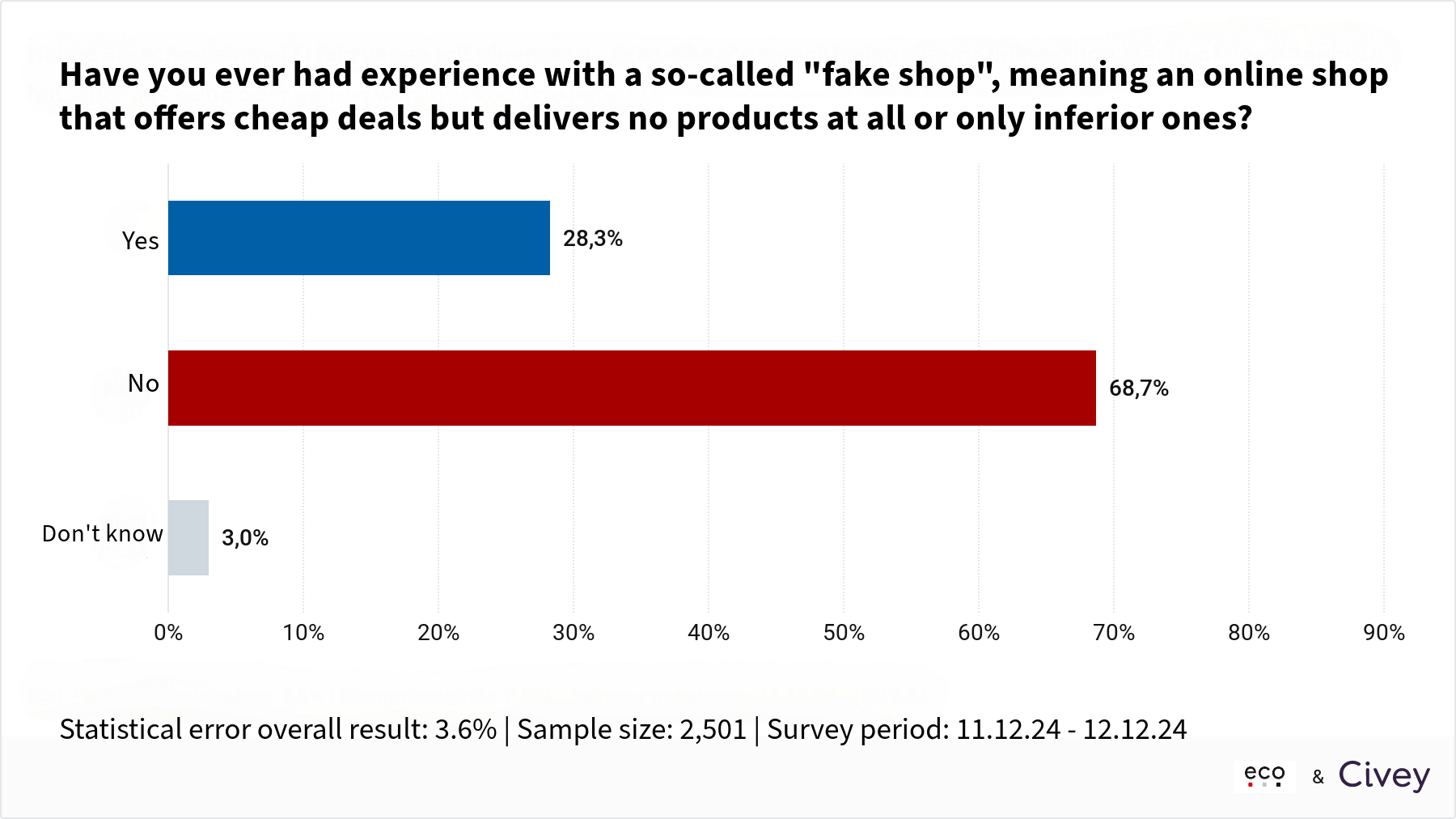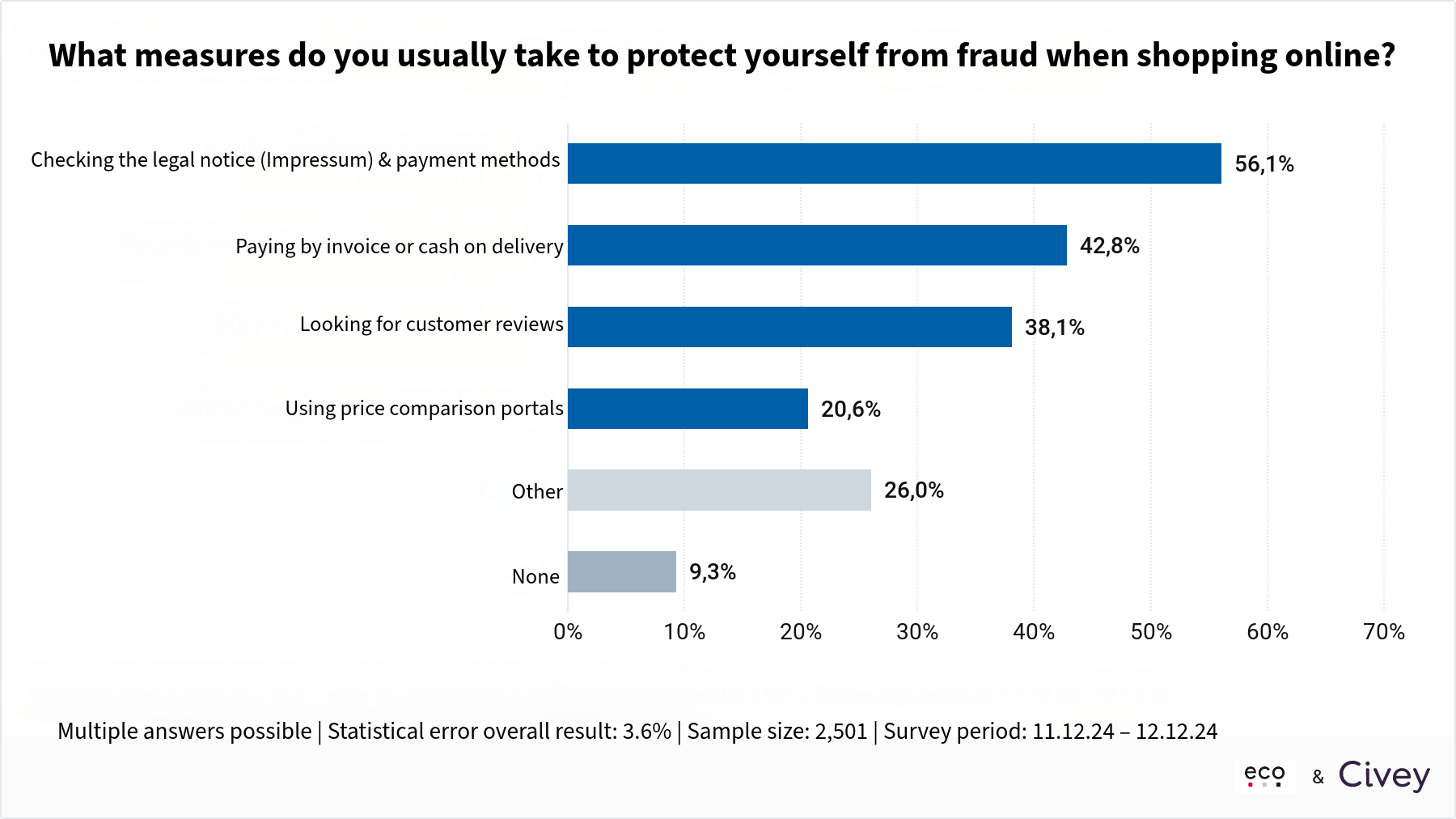Flowers, jewellery or small gifts: Mother’s Day is approaching – and online retail is booming. But where the shopping mood is rising, risks are also lurking. eco Association of the Internet Industry warns: Fake shops are currently luring many buyers into their traps again – often through advertising on social networks.
Too good to be true
Fake shops are fraudulent online shops that lure shoppers with particularly favourable prices and attractive providers. Buyers often receive no goods or inferior products after payment. According to a study by the Federation of German Consumer Organisations – vzbv, more than 5 million people in Germany have already fallen victim to fake shops – either because they were affected themselves or because they know someone in their environment who was (source: Federation of German Consumer Organisations – vzbv, Marktwatcher study). Particularly perfidious: around 30% of those affected came to the sites via advertising on social networks – a trend that, according to the consumer advice centre, increases particularly around seasonal occasions such as Mother’s Day or Christmas.
Social media: Gateway for fake shops
Platforms such as Facebook, Instagram and TikTok are playing an increasingly important role in the spread of dubious online offers. Fraudsters use targeted adverts and seemingly trustworthy profiles to trigger spontaneous purchases. ‘The low barriers to entry and the ability to post fake reviews make social media an ideal channel for online fraudsters,’ explains Olaf Pursche, Leader of the eco Competence Group in the eco Association. Direct links to fraudulent sites as well as fake comments and likes convey a false sense of respectability.
eco survey: vigilance is required
In a representative survey, the eco Association found that 32 per cent of respondents have been scammed themselves when shopping online or know someone who has been. 27 per cent reported difficulties with returns or exchanges. At the same time, it was found that almost one in two (47 per cent) are unsure whether an online shop is reputable or not – and only 21 per cent actively use tools such as the Fakeshop Finder to check.*
On the safe side?
The eco security experts recommend looking out for the following warning signs when shopping online:
- Unencrypted data transmission: Whether a shop transmits encrypted data can be recognised in the browser by the lock symbol and the https URL.
- Only prepayment is offered as a payment method.
- The Internet address is similar to a well-known, reputable shop, but has a different ending. Instead of ‘quelle.de’, for example, the address is ‘quelle.org’.
- Incomplete legal notice, no information on cancellation or shipping costs.
- The customer reviews are consistently positive.
- The general terms and conditions are missing completely or are written in poor English.
- Seals of approval are not linked to the organisation awarding the seal.
- On other pages online, testimonials and reviews from other customers warn against the fake shop.
- Advertising exclusively via social media with questionable comments.
Tips for safe online shopping from the eco security experts:
- Use the fake shop finder from the consumer advice centres
- Favour well-known and proven providers
- Look out for secure payment methods with buyer protection
- Check social media profiles critically: recognise genuine reviews, check the legal notice
- Don’t make hasty purchases via advertising links – compare offers via search engines
eco Association focuses on education
As the Association of the Internet Industry, eco is committed to secure and trustworthy online retail. ‘Especially around emotional occasions such as Mother’s Day, it’s important not to fall for fake shops,’ says Olaf Pursche. ‘A nice online purchase can otherwise end in bitter disappointment.’


*The market and opinion research institute Civey surveyed 2501 German citizens between 11 December 2024 and 12 December 2024 on behalf of the eco – Association of the Internet Industry. The survey is representative of the population, the statistical error is 3.6%.




